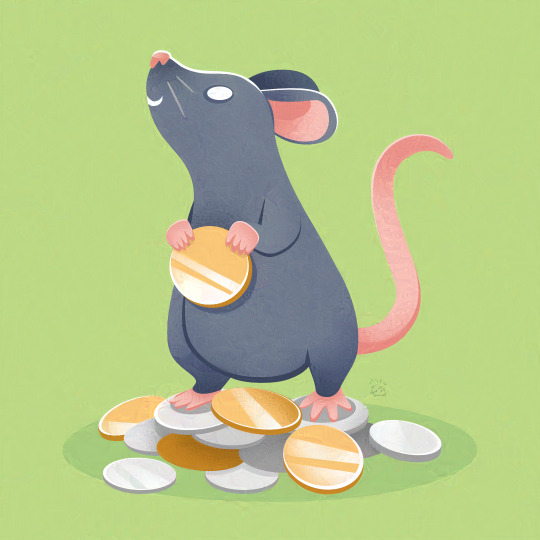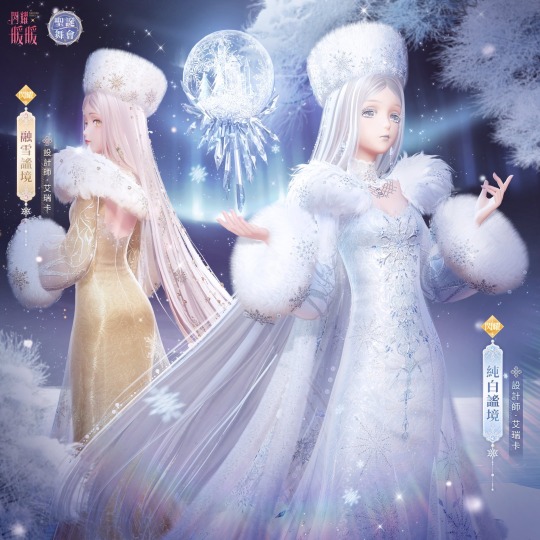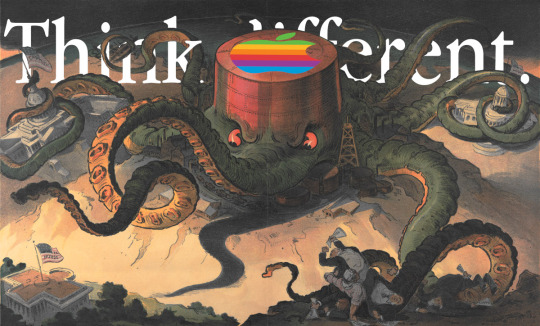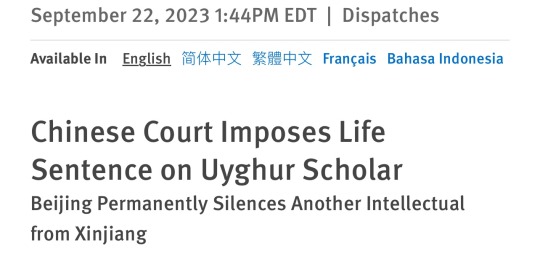#chinese new year 2021
Text

Character design🐅
Don't think I ever gave her a name tho.
#oc#doodle#digital art#digital drawing#original character#character design#digital doodle#chinese new year 2021#year of the tiger
21 notes
·
View notes
Text

the winter holidays are over.... or are they?
theres 2 weeks until the lunar new year celebration begins! as such, take my scrapped piece i had planned for the lunar new year in 2021
#darkstalkers#capcom#hsien ko#lunar new year#chinese new year#lunar new year 2021#lunar new year 2023#chinese new year 2021#chinese new year 2023#Fanart#fanartist#magnum.txt
8 notes
·
View notes
Text









GUAN XIAOTONG 关晓彤 in Giambattista Valli 2021 S/S Haute Couture 『 LOOK1 』 | 2024 NYE Gala — Zhejiang TV
Guan Xiaotong: more photos here
2024 NYE Gala: more photos here
#guan xiaotong#关晓彤#chinese actress#chinese fashion#fashion#cnladies#New Year 2024#New Year's Eve Gala#NYE Gala#giambattista valli#giambattista valli haute couture#giambattista valli 2021 SS#haute couture#couture#haute fashion#couture fashion#haute couture fashion#orange dress#2024 NYE Gala
11 notes
·
View notes
Text


Chinese New Year animals from past years.
#chinese new year#metal rat#water tiger#I didn't get to draw the Ox from 2021#but looking forward to drawing the Dragon next year.
19 notes
·
View notes
Text




[SN JPN] News: Back to Back Hells
We don’t know if this will affect our server as well, but our server usually follows JN with Shining Nikki, but in their livestream (for Nikki’s 10th anniv) they ankunced the following:
• 2 hell events back to back, 5 days apart
• Dec 15 — 25: Christmas Queens double UR
• Dec 30 — Jan 12: CNY’22 Tiger/Flower double UR
• JPN is going to skip CNY ‘21 completely
For Global, we’re also getting Christmas Queens, but we’re expecting it around Christmas time, and ending around New Year. We MIGHT get a longer-ish break before CNY, but not we’re also not sure they’ll skip CNY 21 for us too
* all the suits mentioned are pictured; above is CNY 22 and Xmas Queens, below is CNY 21 *


#u/mightguygonna on Sn Reddit pointed this out#all credits to them!#comments are also saying because CNY 2021 is very chinese it wouldn’t do well for JPN new year#I REALLY like CNY 21 suits…would be a shame if they skipped 😭#shining nikki#sn global#sn news#vee talks
63 notes
·
View notes
Text




新春快樂~*・゜゚・*:.。..。.:*・'(*゚▽゚*)'・*:.。. .。.:*・゜゚・*
Happy Chinese New Year~*・゜゚・*:.。..。.:*・'(*゚▽゚*)'・*:.。. .。.:*・゜゚・*
#lxh#luo xiao hei zhan ji#罗小黑战记#羅小黒戦記#the legend of luoxiaohei#year: 2021#chinese new year#bidiu#xiaohei#heixiu
32 notes
·
View notes
Text
Origami rabbit donee

If I let it go it inflates a little too much since the material is so thicc. Might try again later.
For now it's getting pretty late so I gotta prepare dinner LOL hopefully I get to do my other stuff
Video I used:
youtube
#chinese new year#2023#not visiting today so a lil something to commemorate i guess#ill probably do this every year with the zodiac animal (next year is dragon though...so im not sure)#i did fold quite a few oxen in 2021#i forgot if i did any last year#Youtube#posting#my pics
2 notes
·
View notes
Photo

Didn’t post this here last year. Oop.
Happy (belated) Year of the Ox 2021!
#original character#year of the ox#digital art#oc#xmacxart#xmacxoc#jc#year of the ox 2021#happy new year#chinese new year
2 notes
·
View notes
Text
A few years ago, I noticed that a number of factories in China had started opening TikTok accounts and posting footage from their assembly lines. The videos offered a rare glimpse into global supply chains, and millions of Western TikTok users marveled at teddy bears being stuffed with polyester fiberfill, machines dipping gardening gloves into hot liquified nitrile rubber, and quality assurance testers seeing whether cheap cigarette lighters worked. (My friend and former colleague Andrew Deck wrote a great story about factory TikTok for Rest of World in 2021.)
Since then, hundreds of other Chinese factories have joined TikTok. Some of them produce industrial equipment that would never be bought by normal people, like dump trucks or bottle labeling machines. And while the older factory accounts were often created by marketing agencies, these newer ones seem to largely be the work of earnest salespeople trying to find new customers. Many of them are relying on AI translation and text-to-speech tools, making the videos unintentionally sound very funny.
One of these manufacturers is a company called Donghua Jinlong, which is headquartered in Hebei province about 200 miles from Beijing. It sells “high quality industrial grade glycine,” a type of nutritional additive that evidently sounds silly and abstract to people who never need to think about how processed food is made. Donghua Jinglong and its glycine have become a relatively big meme on TikTok, Instagram, and X over the last few days, and some of the company’s videos are getting over 100,000 views (even though its official account only has roughly 4,400 followers).
Donghua Jinlong itself, however, doesn’t seem to have any idea what’s going on. People in the comments keep begging it to make official merch, but the company doesn’t understand why anyone would want a sweatshirt or t-shirt with the name of an industrial manufacturer on it. Shitposters have also started referencing the Donghua Jinlong meme in the comments of videos from other Chinese factories.
A company called HengYuan, for example, posted a video of what can only be described as a machine for filling Tide Pods, and one of the top comments is someone asking “Could you pack food grade glycine in this?”
Clearly baffled, HengYuan responded, “No. This is used to pack detergent in PVA Film.”
The Donghua Jinlong meme is a great microcosm of what’s actually happening on TikTok when it comes to content from China. Some people might argue that Chinese manufacturers are choosing to post on the app because its parent company, ByteDance, is also from China. In other words, these factories could be held up as an example of TikTok allowing Chinese influence to grow in the US (albeit a bizarre one).
But Donghua Jinlong also has a Facebook page with even more followers, it’s just that no one is engaging with its posts there. That’s because there are likely very few people searching social media for a new glycine supplier at any given time. TikTok, however, doesn’t rely on users to actively seek out content, it serves videos to them via an algorithm. So now tons of random people are coming across glycine manufacturers and Tide Pod machines by accident, and they’re happily turning the whole thing into a joke.
I personally find these videos to be fascinating, both because It’s cool to learn how things are made, and because they provide the opportunity to watch in real time what happens when random Chinese companies come into contact with American social media users. I don’t think this is the type of Chinese influence lawmakers are imagining when they worry about TikTok, but it’s arguably much more interesting and human.

353 notes
·
View notes
Text
Exposing SVSSS Fanon: 9/∞
LUO BINGHE HAS CURLY HAIR
Rating: FANON - UNSUPPORTED
Luo Binghe's hair texture in the novel is not described as either curly or straight. There is only one place where his hair texture is referenced at all:
Shen Qingqiu forced his eyes open and looked down, only to find a small head with a curtain of soft black hair. (7 Seas, Ch. 28)
The idea that Luo Binghe canonically has curly hair was likely cemented within western fanon because of the EN TL official art depicting his hair as curly. However, the depiction of Luo Binghe with curly hair as a headcanon originates before the Seven Seas novels were released.
There are multiple editions where the cover art depicts a wavy-haired Luo Binghe, including Burmese, Korean, Thai (though this one is only very slightly wavy, if it isn't just an atmospheric detail), revamped Taiwanese, and of course the English version, which is by far the most curly.
However, all of these releases occured in 2020/2021, which is after the depiction of Luo Binghe with curly hair was already popularized in fandom.
The most likely original source for this headcanon is the fact that Luo Binghe is commonly compared to a sheep or lamb:
Such a selfless and considerate attitude! For a moment, Shen Qingqiu could almost imagine that he was a cute and harmless little sheep grazing on the grass and playfully nudging Shen Qingqiu’s knees, bleating, “baa baa.”
(CNoveluv, Ch. 33)
With that considerate display of selflessness, for a moment Shen Qingqiu could almost believe that the individual before his eyes was still that bleating, grass-loving little lamb who had huddled behind his knees.
(7 Seas, Ch. 6)
This is just one of many such comparisons made throughout the novel-- though the comparison is always made to describe Luo Binghe's personality rather than his appearance, it could certainly draw an association with curly/fluffy hair, and influence the way he is portrayed in fanart.
For example, this post by @/zeldacw from 2018 (a year after the first major EN fantranslation projects began) directly states that this comparison is the origin of that particular artist's headcanon and depiction. By that point in time, the depiction was not yet as sweepingly popular as it became later on, though there had been a few other depictions of curly-haired Luo Binghe by that point in time.
However, by 2019, a comment on the BCnovels translation was made which states: "Many of the fanarts of Luo Binghe that I have seen pictured him with soft curly hair. I’m quite fond of the idea actually, it gives him the innocent child-like image"
By this point in time, the depiction of Luo Binghe with curly hair has taken off enough to become common, but it is not yet assumed to be canon. It's reasonable to assume, though, that the cover artists followed off of this same trend in fandom.
Now that the official cover art of the books depicts Luo Binghe with curly hair, despite his hair texture never being directly stated in canon, the official art is taken to be a canonical depiction especially by new fans joining the fandom through these official editions, and by fanartists continuing to keep up with the trend of drawing Luo Binghe's hair as curly.
However, common fandom depictions give his hair an even curlier, fluffier, or coilier texture than the cover art does.
This has no basis in the novel's text.
One additional statement that is commonly tossed around as a source is that Luo Binghe's hair is described as fluffy. This is an incorrect statement-- nowhere in the novel, whether the official translation or fantranslations, is Luo Binghe's hair described as being "fluffy."
(many thanks to @verycharismaticdragon , @loxare , @mochhio , @nottherailtracer , @iwhateveryou , @danmeiireader for positing potential sources, and @furbygoblinxiv and @cum-villain for timeline sleuthing!)
I've heard it said plenty of times that all Chinese people have naturally straight black hair. This is not true (I say as a wavy-haired Chinese person who gets tired of the erasure sometimes). It's not common, but it's not as rare as people think-- but wavy or curly Chinese hair behaves differently from other ethnicities'. It's relatively coarse and stiff, has a tendency to be frizzy, and (at least in my own experience) almost impossible for there to be any kind of uniformity to the curl, and takes a lot of work to style well-- many Asian people with curly hair will just straighten theirs instead.
One could argue that because Luo Binghe's hair texture is never described as curly or wavy, then there is no reason to think that it would deviate from the typical straight hair. In my opinion, this is significantly likely. Without the EN art, I would certainly not imagine Luo Binghe to have curly hair, and would assume it was straight.
There are also Chinese beauty standards to keep in mind, which overwhelmingly favor straight hair.
Of course, because it is never directly stated whether he has or doesn't have wavy or curly hair, it cannot be said that it is against canon. Furthermore, his appearance has a bit of an idol-like air to it, and some idols do have wavy or curly hair.
Therefore, it is not impossible that Luo Binghe has curly or wavy hair. However, since it would be likely that an uncommon hair texture would be described directly if it were intended to be canon, and Shen Qingqiu's narration would almost certainly have mentioned it with his tendency to gush over LBH's appearance, it is not particularly likely.
There's not really anything wrong with depicting Luo Binghe as curly-haired, and it doesn't even directly conflict with canon-- however, if he does have curly hair, he would have curly Asian hair (albeit, curly Asian hair that miraculously looks as though he had used a complicated hair routine but really he just woke up that way because he is the Protagonist™)-- so if someone isn't familiar with the hair type, it wouldn't hurt to do a little bit of research before drawing/writing about it.
However fans choose to portray it, though, it should not be assumed that Luo Binghe's hair is canonically curly.
305 notes
·
View notes
Text


-YEAR OF THE OX- 🐂
Tassel & Buba Manila 🐃
Timelapse ⏩ https://youtube.com/shorts/8s1a3uNnVnI
https://twitter.com/CROWVILLEX/status/1672681069257142272
https://www.instagram.com/p/Ct4o6LFO6Fl/
#OC#original character#character design#digital art#chinese new year#chinese new year 2021#year of the ox
6 notes
·
View notes
Text
The antitrust case against Apple

I'm on tour with my new, nationally bestselling novel The Bezzle! Catch me TONIGHT (Mar 22) in TORONTO, then SUNDAY (Mar 24) with LAURA POITRAS in NYC, then Anaheim, and beyond!

The foundational tenet of "the Cult of Mac" is that buying products from a $3t company makes you a member of an oppressed ethnic minority and therefore every criticism of that corporation is an ethnic slur:
https://pluralistic.net/2024/01/12/youre-holding-it-wrong/#if-dishwashers-were-iphones
Call it "Apple exceptionalism" – the idea that Apple, alone among the Big Tech firms, is virtuous, and therefore its conduct should be interpreted through that lens of virtue. The wellspring of this virtue is conveniently nebulous, which allows for endless goal-post shifting by members of the Cult of Mac when Apple's sins are made manifest.
Take the claim that Apple is "privacy respecting," which is attributed to Apple's business model of financing its services though cash transactions, rather than by selling it customers to advertisers. This is the (widely misunderstood) crux of the "surveillance capitalism" hypothesis: that capitalism is just fine, but once surveillance is in the mix, capitalism fails.
Apple, then, is said to be a virtuous company because its behavior is disciplined by market forces, unlike its spying rivals, whose ability to "hack our dopamine loops" immobilizes the market's invisible hand with "behavior-shaping" shackles:
http://pluralistic.net/HowToDestroySurveillanceCapitalism
Apple makes a big deal out of its privacy-respecting ethos, and not without some justification. After all, Apple went to the mattresses to fight the FBI when they tried to force Apple to introduced defects into its encryption systems:
https://www.eff.org/deeplinks/2018/04/fbi-could-have-gotten-san-bernardino-shooters-iphone-leadership-didnt-say
And Apple gave Ios users the power to opt out of Facebook spying with a single click; 96% of its customers took them up on this offer, costing Facebook $10b (one fifth of the pricetag of the metaverse boondoggle!) in a single year (you love to see it):
https://arstechnica.com/gadgets/2021/02/facebook-makes-the-case-for-activity-tracking-to-ios-14-users-in-new-pop-ups/
Bruce Schneier has a name for this practice: "feudal security." That's when you cede control over your device to a Big Tech warlord whose "walled garden" becomes a fortress that defends you against external threats:
https://pluralistic.net/2021/06/08/leona-helmsley-was-a-pioneer/#manorialism
The keyword here is external threats. When Apple itself threatens your privacy, the fortress becomes a prison. The fact that you can't install unapproved apps on your Ios device means that when Apple decides to harm you, you have nowhere to turn. The first Apple customers to discover this were in China. When the Chinese government ordered Apple to remove all working privacy tools from its App Store, the company obliged, rather than risk losing access to its ultra-cheap manufacturing base (Tim Cook's signal accomplishment, the one that vaulted him into the CEO's seat, was figuring out how to offshore Apple manufacturing to China) and hundreds of millions of middle-class consumers:
https://www.reuters.com/article/us-china-apple-vpn/apple-says-it-is-removing-vpn-services-from-china-app-store-idUSKBN1AE0BQ
Killing VPNs and other privacy tools was just for openers. After Apple caved to Beijing, the demands kept coming. Next, Apple willingly backdoored all its Chinese cloud services, so that the Chinese state could plunder its customers' data at will:
https://www.nytimes.com/2021/05/17/technology/apple-china-censorship-data.html
This was the completely foreseeable consequence of Apple's "curated computing" model: once the company arrogated to itself the power to decide which software you could run on your own computer, it was inevitable that powerful actors – like the Chinese Communist Party – would lean on Apple to exercise that power in service to its goals.
Unsurprisingly, the Chinese state's appetite for deputizing Apple to help with its spying and oppression was not sated by backdooring iCloud and kicking VPNs out of the App Store. As recently as 2022, Apple continued to neuter its tools at the behest of the Chinese state, breaking Airdrop to make it useless for organizing protests in China:
https://pluralistic.net/2022/11/11/foreseeable-consequences/#airdropped
But the threat of Apple turning on its customers isn't limited to China. While the company has been unwilling to spy on its users on behalf of the US government, it's proven more than willing to compromise its worldwide users' privacy to pad its own profits. Remember when Apple let its users opt out of Facebook surveillance with one click? At the very same time, Apple was spinning up its own commercial surveillance program, spying on Ios customers, gathering the very same data as Facebook, and for the very same purpose: to target ads. When it came to its own surveillance, Apple completely ignored its customers' explicit refusal to consent to spying, spied on them anyway, and lied about it:
https://pluralistic.net/2022/11/14/luxury-surveillance/#liar-liar
Here's the thing: even if you believe that Apple has a "corporate personality" that makes it want to do the right thing, that desire to be virtuous is dependent on the constraints Apple faces. The fact that Apple has complete legal and technical control over the hardware it sells – the power to decide who can make software that runs on that hardware, the power to decide who can fix that hardware, the power to decide who can sell parts for that hardware – represents an irresistible temptation to enshittify Apple products.
"Constraints" are the crux of the enshittification hypothesis. The contagion that spread enshittification to every corner of our technological world isn't a newfound sadism or indifference among tech bosses. Those bosses are the same people they've always been – the difference is that today, they are unconstrained.
Having bought, merged or formed a cartel with all their rivals, they don't fear competition (Apple buys 90+ companies per year, and Google pays it an annual $26.3b bribe for default search on its operating systems and programs).
Having captured their regulators, they don't fear fines or other penalties for cheating their customers, workers or suppliers (Apple led the coalition that defeated dozens of Right to Repair bills, year after year, in the late 2010s).
Having wrapped themselves in IP law, they don't fear rivals who make alternative clients, mods, privacy tools or other "adversarial interoperability" tools that disenshittify their products (Apple uses the DMCA, trademark, and other exotic rules to block third-party software, repair, and clients).
True virtue rests not merely in resisting temptation to be wicked, but in recognizing your own weakness and avoiding temptation. As I wrote when Apple embarked on its "curated computing" path, the company would eventually – inevitably – use its power to veto its customers' choices to harm those customers:
https://memex.craphound.com/2010/04/01/why-i-wont-buy-an-ipad-and-think-you-shouldnt-either/
Which is where we're at today. Apple – uniquely among electronics companies – shreds every device that is traded in by its customers, to block third parties from harvesting working components and using them for independent repair:
https://www.vice.com/en/article/yp73jw/apple-recycling-iphones-macbooks
Apple engraves microscopic Apple logos on those parts and uses these as the basis for trademark complaints to US customs, to block the re-importation of parts that escape its shredders:
https://repair.eu/news/apple-uses-trademark-law-to-strengthen-its-monopoly-on-repair/
Apple entered into an illegal price-fixing conspiracy with Amazon to prevent used and refurbished devices from being sold in the "world's biggest marketplace":
https://pluralistic.net/2022/11/10/you-had-one-job/#thats-just-the-as
Why is Apple so opposed to independent repair? Well, they say it's to keep users safe from unscrupulous or incompetent repair technicians (feudal security). But when Tim Cook speaks to his investors, he tells a different story, warning them that the company's profits are threatened by customers who choose to repair (rather than replace) their slippery, fragile glass $1,000 pocket computers (the fortress becomes a prison):
https://www.apple.com/newsroom/2019/01/letter-from-tim-cook-to-apple-investors/
All this adds up to a growing mountain of immortal e-waste, festooned with miniature Apple logos, that our descendants will be dealing with for the next 1,000 years. In the face of this unspeakable crime, Apple engaged in a string of dishonest maneuvers, claiming that it would support independent repair. In 2022, Apple announced a home repair program that turned out to be a laughably absurd con:
https://pluralistic.net/2022/05/22/apples-cement-overshoes/
Then in 2023, Apple announced a fresh "pro-repair" initiative that, once again, actually blocked repair:
https://pluralistic.net/2023/09/22/vin-locking/#thought-differently
Let's pause here a moment and remember that Apple once stood for independent repair, and celebrated the independent repair technicians that kept its customers' beloved Macs running:
https://pluralistic.net/2021/10/29/norwegian-potato-flour-enchiladas/#r2r
Whatever virtue lurks in Apple's corporate personhood, it is no match for the temptation that comes from running a locked-down platform designed to capture IP rights so that it can prevent normal competitive activities, like fixing phones, processing payments, or offering apps.
When Apple rolled out the App Store, Steve Jobs promised that it would save journalism and other forms of "content creation" by finally giving users a way to pay rightsholders. A decade later, that promise has been shattered by the app tax – a 30% rake on every in-app transaction that can't be avoided because Apple will kick your app out of the App Store if you even mention that your customers can pay you via the web in order to avoid giving a third of their content dollars to a hardware manufacturer that contributed nothing to the production of that material:
https://www.eff.org/deeplinks/2023/06/save-news-we-must-open-app-stores
Among the apps that Apple also refuses to allow on Ios is third-party browsers. Every Iphone browser is just a reskinned version of Apple's Safari, running on the same antiquated, insecure Webkit browser engine. The fact that Webkit is incomplete and outdated is a feature, not a bug, because it lets Apple block web apps – apps delivered via browsers, rather than app stores:
https://pluralistic.net/2022/12/13/kitbashed/#app-store-tax
Last month, the EU took aim at Apple's veto over its users' and software vendors' ability to transact with one another. The newly in-effect Digital Markets Act requires Apple to open up both third-party payment processing and third-party app stores. Apple's response to this is the very definition of malicious compliance, a snake's nest of junk-fees, onerous terms of service, and petty punitive measures that all add up to a great, big "Go fuck yourself":
https://pluralistic.net/2024/02/06/spoil-the-bunch/#dma
But Apple's bullying, privacy invasion, price-gouging and environmental crimes are global, and the EU isn't the only government seeking to end them. They're in the firing line in Japan:
https://asia.nikkei.com/Business/Technology/Japan-to-crack-down-on-Apple-and-Google-app-store-monopolies
And in the UK:
https://www.gov.uk/government/news/cma-wins-appeal-in-apple-case
And now, famously, the US Department of Justice is coming for Apple, with a bold antitrust complaint that strikes at the heart of Apple exceptionalism, the idea that monopoly is safer for users than technological self-determination:
https://www.justice.gov/opa/media/1344546/dl?inline
There's passages in the complaint that read like I wrote them:
Apple wraps itself in a cloak of privacy, security, and consumer preferences to justify its anticompetitive conduct. Indeed, it spends billions on marketing and branding to promote the self-serving premise that only Apple can safeguard consumers’ privacy and security interests. Apple selectively compromises privacy and security interests when doing so is in Apple’s own financial interest—such as degrading the security of text messages, offering governments and certain companies the chance to access more private and secure versions of app stores, or accepting billions of dollars each year for choosing Google as its default search engine when more private options are available. In the end, Apple deploys privacy and security justifications as an elastic shield that can stretch or contract to serve Apple’s financial and business interests.
After all, Apple punishes its customers for communicating with Android users by forcing them to do so without any encryption. When Beeper Mini rolled out an Imessage-compatible Android app that fixed this, giving Iphone owners the privacy Apple says they deserve but denies to them, Apple destroyed Beeper Mini:
https://blog.beeper.com/p/beeper-moving-forward
Tim Cook is on record about this: if you want to securely communicate with an Android user, you must "buy them an Iphone":
https://www.theverge.com/2022/9/7/23342243/tim-cook-apple-rcs-imessage-android-iphone-compatibility
If your friend, family member or customer declines to change mobile operating systems, Tim Cook insists that you must communicate without any privacy or security.
Even where Apple tries for security, it sometimes fails ("security is a process, not a product" -B. Schneier). To be secure in a benevolent dictatorship, it must also be an infallible dictatorship. Apple's far from infallible: Eight generations of Iphones have unpatchable hardware defects:
https://checkm8.info/
And Apple's latest custom chips have secret-leaking, unpatchable vulnerabilities:
https://arstechnica.com/security/2024/03/hackers-can-extract-secret-encryption-keys-from-apples-mac-chips/
Apple's far from infallible – but they're also far from benevolent. Despite Apple's claims, its hardware, operating system and apps are riddled with deliberate privacy defects, introduce to protect Apple's shareholders at the expense of its customers:
https://proton.me/blog/iphone-privacy
Now, antitrust suits are notoriously hard to make, especially after 40 years of bad-precedent-setting, monopoly-friendly antitrust malpractice. Much of the time, these suits fail because they can't prove that tech bosses intentionally built their monopolies. However, tech is a written culture, one that leaves abundant, indelible records of corporate deliberations. What's more, tech bosses are notoriously prone to bragging about their nefarious intentions, committing them to writing:
https://pluralistic.net/2023/09/03/big-tech-cant-stop-telling-on-itself/
Apple is no exception – there's an abundance of written records that establish that Apple deliberately, illegally set out to create and maintain a monopoly:
https://www.wired.com/story/4-internal-apple-emails-helped-doj-build-antitrust-case/
Apple claims that its monopoly is beneficent, used to protect its users, making its products more "elegant" and safe. But when Apple's interests conflict with its customers' safety and privacy – and pocketbooks – Apple always puts itself first, just like every other corporation. In other words: Apple is unexceptional.
The Cult of Mac denies this. They say that no one wants to use a third-party app store, no one wants third-party payments, no one wants third-party repair. This is obviously wrong and trivially disproved: if no Apple customer wanted these things, Apple wouldn't have to go to enormous lengths to prevent them. The only phones that an independent Iphone repair shop fixes are Iphones: which means Iphone owners want independent repair.
The rejoinder from the Cult of Mac is that those Iphone owners shouldn't own Iphones: if they wanted to exercise property rights over their phones, they shouldn't have bought a phone from Apple. This is the "No True Scotsman" fallacy for distraction-rectangles, and moreover, it's impossible to square with Tim Cook's insistence that if you want private communications, you must buy an Iphone.
Apple is unexceptional. It's just another Big Tech monopolist. Rounded corners don't preserve virtue any better than square ones. Any company that is freed from constraints – of competition, regulation and interoperability – will always enshittify. Apple – being unexceptional – is no exception.

Name your price for 18 of my DRM-free ebooks and support the Electronic Frontier Foundation with the Humble Cory Doctorow Bundle.

If you'd like an essay-formatted version of this post to read or share, here's a link to it on pluralistic.net, my surveillance-free, ad-free, tracker-free blog:
https://pluralistic.net/2024/03/22/reality-distortion-field/#three-trillion-here-three-trillion-there-pretty-soon-youre-talking-real-money
#pluralistic#apple#antitrust#cult of mac#ios#mobile#app tax#infosec#feudal security#doj#jonathan kanter#doj v apple#big tech#trustbusting#monopolies#app stores#technofeudalism#technomaorialism#privacy#right to repair#corruption
232 notes
·
View notes
Text



“Name me a single objective we’ve ever set out to accomplish that we’ve failed on. Name me one, in all of our history. Not one!”
-President Joe Biden, August 16, 2023
Joe Biden in one of his now accustomed angry “get off my grass” moods dared the press to find just one of his policies/objectives that has not worked. Silence followed.
Perhaps it was polite to say nothing, given even the media knows almost every enacted Biden policy has failed.
Here is a summation of what he should instead apologize for.
Biden in late summer 2021 sought a 20th anniversary celebration of 9/11 and the 2001 subsequent invasion of Afghanistan. He wished to be the landmark president that yanked everyone out of Afghanistan after 20 years in country. But the result was the greatest military humiliation of the United States since the flight from Vietnam in 1975.
Consider the ripples of Biden’s disaster. U.S. deterrence was crippled worldwide. China, Russia, Iran, and North Korea almost immediately began to bluster or return to their chronic harassment of U.S. and allied ships and planes. We left thousands of allied Afghans to face Taliban retribution, along with some Western contractors.
Biden abandoned a $1 billion embassy, and a $300 million remodeled Bagram airbase strategically located not far from China and Russia, and easily defensible. Perhaps $50 billion in U.S. weaponry and supplies were abandoned and now find their way into the international terrorist mart.
All our pride flags, our multimillion gender studies programs at Kabul University, and our George Floyd murals did not just come to naught, but were replaced by the Taliban’s anti-homosexual campaigns, burkas, and detestation of any trace of American popular culture.
Vladimir Putin sized up the skedaddle. He collated it with Biden’s unhinged quip that he would not get too excited if Putin just staged a “minor” invasion of Ukraine. He remembered Biden’s earlier request to Putin to modulate Russian hacking to exempt a few humanitarian American institutions. Then Russia concluded of our shaky Commander-in-Chief that he either did not care or could do nothing about another Russian invasion.
The result so far is more than 500,000 dead and wounded in the war, a Verdun-stand-off along with fortified lines, the steady depletion of our munitions and weapon stocks, and a new China/Russia/Iran/North Korean axis, with wink and nod assistance from NATO Turkey.
Biden blew up the Abraham accords, nudged Saudi Arabia and the Gulf States over to the dark side of Iran, China, and Russia. He humiliated the U.S. on the eve of the midterms by callously begging the likes of Iran, Venezuela, Russia, and Saudi Arabia to pump more oil that he had damned as unclean at home and cut back its production. In Bidenomics, instead of producing oil, the president begs autocracies to export it to us at high prices while he drains the nation’s strategic petroleum reserve for short-term political advantage.
Biden deliberately alienated Israel by openly interfering in its domestic politics. He pursued the crackpot Iran Deal while his special Iranian envoy was removed for disclosing classified information.
No one can explain why Biden ignored the Chinese balloon espionage caper, kept mum about the engineered Covid virus that escaped the Wuhan lab, said not a word about a Chinese biolab discovered in rural California, and had his envoys either bow before Chinese leaders or take their insults in silence—other than he is either cognitively challenged or leveraged by his decade-long grifting partnership with his son Hunter.
Yet another Biden’s legacy will be erasing the southern border and with it, U.S. immigration law. Over seven million aliens simply crossed into the U.S. illegally with Biden’s tacit sanction—without audits, background checks, vaccinations, and COVID testing, much less English fluency, skills, or high-school diplomas.
Biden’s only immigration accomplishment was to render the entire illegal sanctuary city movement a cruel joke. Given the flood, mostly rich urban and vacation home dwellers made it very clear that while they fully support millions swarming into poor Latino communities of southern Texas and Arizona, they do not want any illegal aliens fouling their carefully cultivated nests.
Biden is mum about the 100,000 fentanyl deaths from cartel-imported and Chinese-supplied drugs across his open border. He seems to like the idea that Mexican President Obrador periodically mouths off, ordering his vast expatriate community to vote Democratic and against Trump.
Despite all the pseudo-blue collar dissimulation about Old Joe Biden from Scranton, he has little empathy for the working classes. Indeed, he derides them as chumps and dregs, urges miners to learn coding as the world covets their coal, and studiously avoids getting anywhere near the toxic mess in East Palestine, Ohio, or so far the moonscape on Maui.
Bidenomics is a synonym for printing up to $6 billion dollars at precisely the time post-Covid consumer demand was soaring, while previously dormant supply chains were months behind rebooting production and transportation. Biden is on track to increase the national debt more than any one-term president.
In Biden’s weird logic, if he raised the price of energy, gasoline, and key food staples 20-30 percent since his inauguration without a commensurate rise in wages, and then saw the worst inflation in 40 years occasionally decline from record highs one month to the next, then he “beat inflation.”
But the reason why more than 60 percent of the nation has no confidence in Bidenomics is because it destroyed their household budgets. Gas is nearly twice what it was in January 2021. Interest rates have about tripled. Key staple foods are often twice as costly—meat, vegetables, and fruits especially.
Biden has ended through his weaponized Attorney General Merrick Garland the age-old American commitment to equal justice under the law. The FBI, DOJ, CIA, and IRS are hopelessly politically compromised. Many of their bureaucrats serve as retrieval agents for lost Biden family incriminating laptops, diaries, and guns. In sum, Biden criminalized opposing political views.
Biden has unleashed the administrative state for the first time in history to destroy the Republican primary front runner and his likely opponent. His legacy will be the corruption of U.S. jurisprudence and the obliteration of the American reputation for transparent permanent government that should be always above politics, bribery, and corruption.
If in the future, an on-the-make conservative prosecutor in West Virginia, Utah, or Mississippi wishes to make a national name, then he has ample precedent to indict a Democrat President for receiving bad legal advice, questioning the integrity of an election, or using social media to express doubt that the new non-Election-Day balloting was on the up-and-up, or supposedly overvaluing his real estate.
The Biden family’s decade-long family grifting will likely expose Joe Biden as the first president in U.S. history who fitted precisely the Constitution’s definition of impeachment and removal—given his “high crimes and misdemeanors” appear “bribery”-related. If further evidence shows he altered U.S. foreign policy in accordance with the wishes from his benefactors in Ukraine, China, or Romania, then he committed constitutionally-defined “treason” as well.
Defunding the police, and pandemics of exempted looting, shoplifting, smashing, and grabbing, and carjacking merit no administrative attention. Nor does the ongoing systematic destruction of our blue bicoastal cities, Los Angeles, New York, Portland, San Francisco, Seattle, and Washington, D.C. All that, along with the disasters in East Palestine or Maui are out of sight, out of mind from a day at the beach at Biden’s mysteriously purchased nearly 6,000 square-foot beachfront mansion.
Biden ran on Barack Obama-like 2004 rhetoric (“Well, I say to them tonight, there is not a liberal America and a conservative America — there is the United States of America).”
And like Obama, he used that ecumenical sophistry to gain office only to divide further the U.S. No sooner than he was elected, we began hearing from the great unifier eerie screaming harangues about “semi-fascists” and “ultra-MAGA” dangerous zealots, replete with red-and black Phantom of the Opera backdrops.
What followed the unifying rhetoric was often amnesties and exemptions for violent offenders during the 120 days of rioting, looting, killing, and attacks on police officers in summer 2020. In contrast, his administration lied when it alleged that numerous officers had died at the hands of the January 6 rioters. In addition, the Biden administration mandated long-term incarceration of many who committed no illegal act other than acting like buffoons and “illegally parading.”
The message was exemptions for torching a federal courthouse, a police precinct, or historic church or attempting to break into the White House grounds to get a president and his family—but long prison terms for wearing cow horns, a fur vest, and trespassing peacefully like a lost fool in the Capitol.
Finally, Biden’s most glaring failure was simply being unpresidential. He snaps at reporters, and shouts at importune times. He can no longer read off a big-print teleprompter. Even before a global audience, he cannot kick his lifelong creepy habit of turkey-gobbling on children necks, blowing into their ears and hair of young girls, and squeezing women far too long and far too hard.
His frailty redefined American presidential campaigning as basement seclusion and outsourcing propaganda to the media. And his disabilities only intensified during his presidency. Biden begins his day late and quits early. He has recalibrated the presidency as a 5-hour, 3-day a week job.
If Trump was the great exaggerator, Biden is our foremost liar. Little in his biography can be fully believed. He lies about everything from his train rides to the death of his son to his relationship with Biden-family foreign collaborators, to vaccinations to the economy. Anytime Biden mentions places visited, miles flown, or rails ridden, he is likely lying.
Biden continues with impunity because the media feels that a mentally challenged fabulist is preferable to Donald Trump and so contextualizes or ignores his falsehoods. Never has a U.S. president fallen and stumbled or gotten lost on stage so frequently—or been a single small trip away from incapacity.
So, yes, Biden’s initiatives have succeeded only in the sense of becoming successfully enacted—and therefore nearly destroying the country.
536 notes
·
View notes
Text
[“The Nazis’ adoption of the US pseudoscience of eugenics has been well documented. They borrowed US race laws and also the US strategy of continental imperialism, ethnically cleansing the land in order to populate it with white settlers, what the Nazis called Lebensraum. Less well known is Nazi officials’ interest in US racially determined immigration laws and citizenship requirements.
Writing four years after the 1924 immigration act, Adolf Hitler, in the unpublished 1928 sequel to Mein Kampf, admiringly characterized the United States as “a race-state,” referring to the US racist immigration measures that began with Chinese exclusion in 1882 and expanded to other nationalities in 1924. Hitler wrote, “American immigration policies provide confirmation that the previous ‘melting pot’ approach presupposes humans of a certain similar racial basis,” and that approach “immediately fails as soon as fundamentally different types of humans are involved.”
When the Nazi lawyers began studying US race laws in depth in 1936, they were surprised that racial exclusion dated to the founding, one remarking that such was not common at the time. Yale law professor James Q. Whitman writes in his important book Hitler’s American Model: The United States and the Making of Nazi Race Law, “The two new Nazi anti-Jewish measures that we remember today as the Nuremberg Laws . . . were the product of many months of Nazi discussion and debate that included regular, studious, and often admiring engagement with the race law of the United States.”
In a global history for German readers published in 1934, Nazi historian Albrecht Wirth hailed the founding of the United States: “The most important event in the history of the states of the Second Millennium . . . was the founding of the United States of America. The struggle of the Aryans for world domination received thereby its strongest prop.” Another Nazi-era book in 1936, the translated title of which was The Supremacy of the White Race, characterized the US founding as “the first fateful turning point” in the worldwide rise of white supremacy, informing readers that the United States had assumed “the leadership of the white peoples” after World War I, without which “a conscious unity of the white race would never have emerged.”]
roxanne dunbar-ortiz, from not a nation of immigrants: settler colonialism, white supremacy, and a history of erasure and exclusion, 2021
485 notes
·
View notes
Text
What's Happening in China? The November 2022 Protests
Hello! I know that there's so much going on in the world right now, so not everyone may be aware of what is happening in China right now. I thought that I would try to write a brief explainer, because the current wave of protests is truly unprecedented in the past 30+ years, and there is a lot of fear over what may happen next. For context, I'm doing this as someone who has a PhD in Asian Studies specialising in contemporary Chinese politics, so I don't know everything but I have researched China for many years.
I'll post some decent links at the end along with some China specialists & journalists I follow on Twitter (yeah I know, but it's still the place for the stuff at the moment). Here are the bullet points for those who just want a brief update:
Xi Jinping's government is still enacting a strict Zero Covid policy enforced by state surveillance and strict lockdowns.
On 24 November a fire in an apartment in Urumqi, Xinjiang province, killed 10. Many blamed strict quarantine policies on preventing evacuation.
Protests followed and have since spread nationwide.
Protesters are taking steps not seen since Tiananmen in 1989, including public chants for Xi and the CCP to step down.
Everyone is currently unsure how the government will respond.
More in-depth discussion and links under the cut:
First a caveat: this is my own analysis/explanation as a Chinese politics specialist. I will include links to read further from other experts and journalists. Also, this will be quite long, so sorry about that!
China's (aka Xi Jinping's) Covid Policy:
The first and most important context: Xi has committed to a strict Zero Covid policy in China, and has refused to change course. Now, other countries have had similar approaches and they undoubtedly saved lives - I was fortunate to live in New Zealand until this year, and Prime Minister Ardern's Zero Covid approach in 2020-2021 helped protect many. The difference is in the style/scope of enforcement, the use of vaccines, and the variant at play. China has stepped up its control on public life over the past 10 years, and has used this to enforce strict quarantine measures without full regard to the impact on people's lives - stories of people not getting food were common. Quarantine has also become a feared situation, as China moves people to facilities often little better than prisons and allegedly without much protection from catching Covid within. A personal friend in Zhengzhou went through national, then provincial, then local quarantines when moving back from NZ, and she has since done her best to avoid going back for her own mental and physical health. Xi has also committed China to its two home-grown vaccines, Sinovac and Sinopharm, both of which have low/dubious efficacy and are considered ineffective against new variants. Finally, with delta and then omicron most of the Zero-Covid countries have modified their approach due to the inability to maintain zero cases. China remains the only country still enacting whole-city eradication lockdowns, and they have become more frequent to the point that several are happening at any given time. The result is a population that is incredibly frustrated and losing hope amidst endless lockdowns and perceived ineffectiveness to address the pandemic.
Other Issues at Play:
Beyond the Covid situation, China is also wrestling with the continued slowdown in its economic growth. While its economic rise and annual GDP growth was nigh meteoric from the 80s to the 00s, it has been slowing over the past ten years, and the government is attempting to manage the transition away from an export-oriented economy to a more fully developed one. However, things are still uncertain, and Covid has taken its toll as it has elsewhere the past couple of years. Youth unemployment in particular is reaching new highs at around 20%, and Xi largely ignored this in his speech at the Party Congress in October (where he entered an unprecedented third term). As a result of the perceived uselessness of China's harsh work culture and its failure to result in a better life, many young Chinese have been promoting 躺平 tǎng píng or "lying flat", aka doing the bare minimum just to get by (similar to the English "quiet quitting"). The combination of economic issues and a botched Covid approach is important, as these directly affect the lives of ordinary middle-class Chinese, and historical it has only been when this occurred that mass movements really took off. The most famous, Tiananmen in 1989, followed China's opening up economic reforms and the dismantling of many economic safety nets allowing for growing inequality. While movements in China often grow to include other topics, having a foundation in something negatively impacting the average Han Chinese person's livelihood is important.
The Spark - 24 Nov 2022 Urumqi Apartment Fire:
The current protests were sparked by a recent fire that broke out in a flat in Urumqi, capital of the Xinjiang province. (This is the same Xinjiang that is home to the Uighur people, against whom China has enacted a campaign of genocide and cultural destruction.) The fire occurred in the evening and resulted in 10 deaths, which many online blamed on the strict lockdown measures imposed by officials, who prevented people from leaving their homes. It even resulted in a rare public apology by city officials. However, with anger being so high nationwide, in addition to many smaller protests that have occurred over the past two years, this incident has ignited a nationwide movement.
The Protests and Their Significance:
The protests that have broken out over the past couple of days representing the largest and most significant challenge to the leadership since the 1989 Tiananmen movement. Similar to that movement, these protests have occurred at universities and cities across the country, with many students taking part openly. This scale is almost unseen in China, particularly for an anti-government protest. Other than Tiananmen in 1989, the most widespread movements that have occurred have been incidents such as the protest of the 1999 Belgrade bombings or the 2005 and then 2012 anti-Japanese protests, all of which were about anger toward a foreign country.
Beyond the scale the protests are hugely significant in their message as well. Protesters are publicly shouting the phrases "习近平下台 Xí Jìnpíng xiàtái!" and "共产党 下台 Gòngchǎndǎng xiàtái!", which mean "Xi Jinping, step down/resign!" and "CCP, step down/resign!" respectively. To shout a direct slogan for the government to resign is unheard of in China, particularly as Xi has tightened control of civil society. And people are doing this across the country in the thousands, openly and in front of police. This is a major challenge for a leader and party who have prioritised regime stability as a core interest for the majority of their history.
Looking Ahead:
Right now, as of 15:00 Australian Eastern time on Monday, 28 November 2022, the protests are only in their first couple of days and we are unsure as to how the government will respond. Police have already been seen beating protesters and journalists and dragging them away in vehicles. However, in many cases the protests have largely been monitored by police but still permitted to occur. There seems to be uncertainty as to how they want to respond just yet, and as such no unified approach.
Many potential outcomes exist, and I would warn everyone to be careful in overplaying what can be achieved. Most experts I have read are not really expecting this to result in Xi's resignation or regime change - these things are possible, surely, but it is a major task to achieve and the unity & scale of the protest movement remains to be fully seen. The government may retaliate with a hard crackdown as it has done with Tiananmen and other protests throughout the years. It may also quietly revamp some policies without publicly admitting a change in order to both pacify protesters and save face. The CCP often uses mixed tactics, both coopting and suppressing protest movements over the years depending on the situation. Changing from Zero Covid may prove more challenging though, given how much Xi has staked his political reputation on enforcing it.
What is important for everyone online, especially those of us abroad, is to watch out for the misinformation campaign the government will launch to counter these protests. Already twitter is reportedly seeing hundreds of Chinese bot accounts mass post escort advertisements using various city names in order to drown out protest results in the site's search engine. Chinese officials will also likely invoke the standard narrative of Western influence and CIA tactics as the reason behind the protests, as they did during the Hong Kong protests.
Finally, there will be a new surge of misinformation and bad takes from tankies, or leftists who uncritically support authoritarian regimes so long as they are anti-US. An infamous one, the Qiao Collective, has already worked to shift the narrative away from the protests and onto debating the merits of Zero Covid. This is largely similar to pro-Putin leftists attempting the justify his invasion of Ukraine. Always remember that the same values that you use to criticise Western countries should be used to criticise authoritarian regimes as well - opposing US militarism and racism, for example, is not incompatible with opposing China's acts of genocide and state suppression. If you want further info (and some good sardonic humour) on the absurd takes and misinfo from pro-China tankies, I would recommend checking out Brian Hioe in the links below.
Finally, keep in mind that this is a grass-roots protest made by people in China, who are putting their own lives at risk to demonstrate openly like this. There have already been so many acts of bravery by those who just want a better future for themselves and their country, and it is belittling and disingenuous to wave away everything they are doing as being just a "Western front" or a few "fringe extremists".
Links:
BBC live coverage page with links to analysis and articles
ABC (Australia) analysis
South China Morning Post analysis
Experts & Journalists to Check Out:
Brian Hioe - Journalist & China writer, New Bloom Magazine
Bonnie Glaser - China scholar, German Marshall Fund
Vicky Xu - Journalist & researcher, Australian Strategic Policy Institute
Stephen McDonnell - Journalist, BBC
M Taylor Fravel - China scholar, MIT
New Zealand Contemporary China Research Centre - NZ's hub of China scholarship (I was fortunate to attend their conferences during my PhD there, they do great work!)
If you've reached the end I hope this helps with understanding what's going on right now! A lot of us who know friends and whanau in China are worried for their safety, so please spread the word and let's hope that there is something of a positive outcome ahead.
#孟珏’s china corner#中国#上海#习近平#习近平下台#共产党下台#China#Shanghai#China protests#China protests 2022#Xi Jinping#Xi Jinping step down#CCP step down#Xi Jinping resign#CCP resign#乌鲁木齐#Urumqi#Urumqi fire#Urumqi apartment fire
1K notes
·
View notes
Text


On Thursday, the human rights group Dui Hua Foundation confirmed that Chinese authorities have handed down a life sentence on the internationally renowned Uyghur ethnographer Rahile Dawut. This outrageous sentence follows Dawut’s six years of arbitrary detention, punctuated only by a secret trial in December 2018 in which the court found her guilty on baseless charges of “endangering state security.”
The news comes on the anniversary of another Uyghur scholar, the economist Ilham Tohti, being sentenced to life imprisonment in 2014. Meanwhile, the Uyghur Human Rights Project has documented that Chinese authorities have forcibly disappeared more than 500 Uyghur intellectuals as of December 2021.
(continue reading)
172 notes
·
View notes